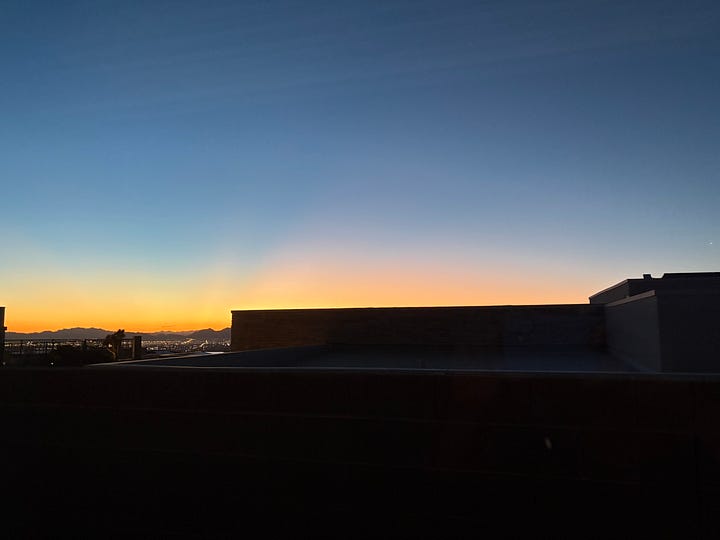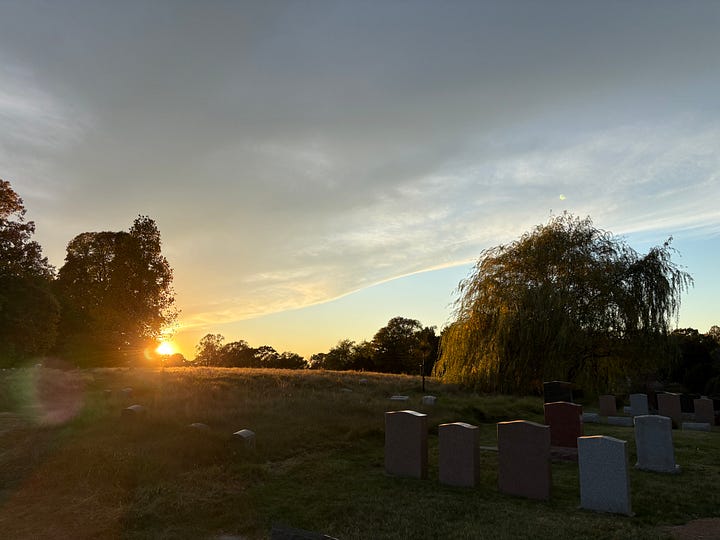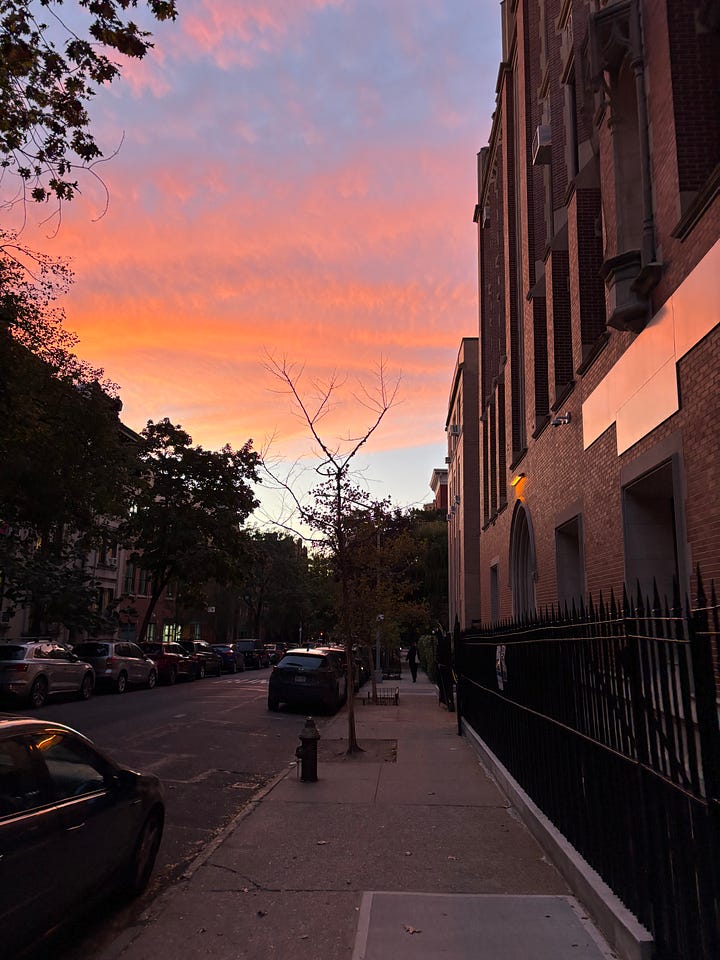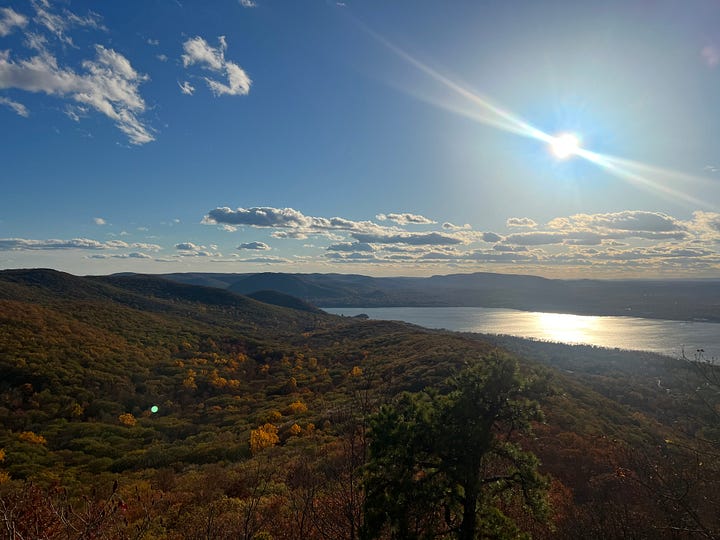In the shattered schoolhouse where for the first time he had felt the security of power, a few feet from the room where he had come to know the uncertainty of love, Arcadio found the formality of death ridiculous. Death did not really matter to him but life did, and therefore the sensation he felt when they gave their decision was not a feeling of fear but of nostalgia.
—Gabriel Garcia Marquez, from 100 Years of Solitude
Blockhead
A fire truck wails down Oak Street, filling me with a curious range of emotion, from idyllic nostalgia to soaring, terrified bliss.
I’m on the balcony of my old apartment, watching a tattered carcass of duct tape flutter over a gap in the fence. A couple years ago, we covered it up before a party. The winds over Masonic have done their work.
I can’t remember much of my time in San Francisco, at least in the way of a straightforward story. Lately, I’ve had to come to terms with an odd fact: the block tower of my memory has collapsed. What was once a neat, steady sequence is now a toppled mess of homes and schools and elsewheres, eastern seaboards and west coasts, highs and lows.
But now, listening to the fire truck’s siren, it all comes back—not as a story but as a feeling.
That wailing meant different things to me during my tenure there: the rush of youthful independence, the grating harshness of a city I no longer loved, the disappearing act of coming into and out of a frame. Now, it means something more subtle. Something like… the distant howl of a life trajectory left behind, the first chapters of which recur infinitely in my memory.
A big red truck wailing down Oak Street. I toy with it in my mind.
What do I want to remember?
An odd question in many ways: a concession to the slippery nature of time, an admission that most of what we see and feel disappears, a submission to the future.
Or perhaps a submission to presence. Perhaps memory is a vessel for presence.
To Charan Ranganath, author of Why We Remember, memories are a model of your past that informs how you move into the future. It’s “everyday fortune telling”: you go to a concert, and you predict that the band will show up slightly late, perform, go offstage, and come back for an encore. If they don’t, the furniture of your memory bank is disturbed, nudged into place.
Memory is a model, and the friction in your life forms its contours. A fish is molded into a streamlined shape by generations of forward movement—a vessel of ancestral memories—but its lifetime learning is limited. As a human being, you can learn to “swim” in a variety of mediums. You can be a skier, a surfer, a mountain climber. Or you can Forrest Gump it and live everything.
No matter what life you find yourself in, you keep swimming in reaction to memories, which push you in certain directions and key you into certain details.
Your memories are, in a sense, who you are.
Carving Candide
In our first dingy leaky apartment, Akshay and I used to watch Candide Thovex’s ski videos, beautifully filmed to show the whole hillside as he carves wide, sweeping arcs in the snow. There’s no music. You can hear the scrape of his skis and the silence as he glides through the air.
I’m not much of a skier, but I marvel at his expertise. It’s hard to believe that he started on the bunny slope like the rest of us, straining to focus the strength in his knees. Soon—and perhaps with a natural aptitude from generations of Frenchmen falling, stumbling, crashing through the Alps—he could let his feet go and focus on the bend ahead.
Now, he sees the whole mountain. After years of doing his own falling, stumbling, and crashing, his mind is tuned to the elements: snow, rock, wood, gravity, wind. His descent is a meditation on his world. His mind is clear as a mirror.
Dragons
Why is it called “Here Be Dragons”? she asked.
I’m not sure. It’s a quiet song with saxophone, piano, and drums—no obvious dragons. At the time, I told her that it’s about how in the quietest, darkest hours of life, you meet the sublime. Or maybe it’s about the creeping sense of unease that underlies halcyon moments—or the terrifying bliss of facing the strange. In fact, this mystery is one of my favorite parts of the song.
Like memories, songs are defined by moments of uncertainty, surprise, and wonder. Unlike memories, songs provide those moments, too. They challenge, inspire, chill to the bone.
The first time I heard “Hallelujah,” I was a middle school boy bursting with unfulfilled desire. I thought it was a love song. It took me years to see that it’s more than that: it’s also about art, despair, God. Leonard Cohen reworked it throughout his life, introducing new verses, changing old ones, cutting them. Until the day he died, he kept being “the baffled king composing ‘Hallelujah.’”
The song is great because it’s continually surprising. Like a religious story told and retold, distilled into a poem rich with the bizarre, wonderful fermentations of emotional necessity. It’s great because it’s more than a song: it’s a window into the mystery of being.
Sometimes, a song will resurface, beckon me.
Around the time I moved to New York, I discovered “No Ordinary Love,” by Sade. It had the perfect sound—drifting but firm, groovy but ambient, melodic but repetitive—to move me dreamily through the subways.
I also fell into a romance around that time. “No Ordinary Love” was a symbol of what I was feeling, the swing and the thrill of forward movement. Of course, in the wake of our breakup, the song rings like an accusation: I gave you all that I had inside and you took my love, you took my love.
It’s a terrifying feeling, to listen to a familiar song and find in it something new—and obvious. Even with something as self-contained as a musical track, the infinite strangeness of life bleeds through.
Since my move to Park Slope, the intensity and sweetness of those first few months in New York have reared up at me again. Now, when I listen to that song, I feel it all: those first days, yes, but also the last days, and the aches and pitfalls that drew those states together.
I can’t make sense of it. It keeps revealing new and unexpected angles, like a twisted blade.
You remember something because it means something: perhaps that’s the simplest and most enduring way to look at it. Maybe one day I won’t remember the heartache—or maybe something or someone will come to reframe it as a sequence in a larger song.
Maybe one day I’ll see the whole mountain. I don’t know. I’m willing to find out.
✤
I've been up and down and around and 'round and back again
I've been so many places I can't remember where or when
And my only boss was the clock on the wall and my only friend
Never really was a friend at allI've traded love for pennies, sold my soul for less
Lost my ideals in that long tunnel of time
I've turned inside out and around about and back and then
Found myself right back where I started again












